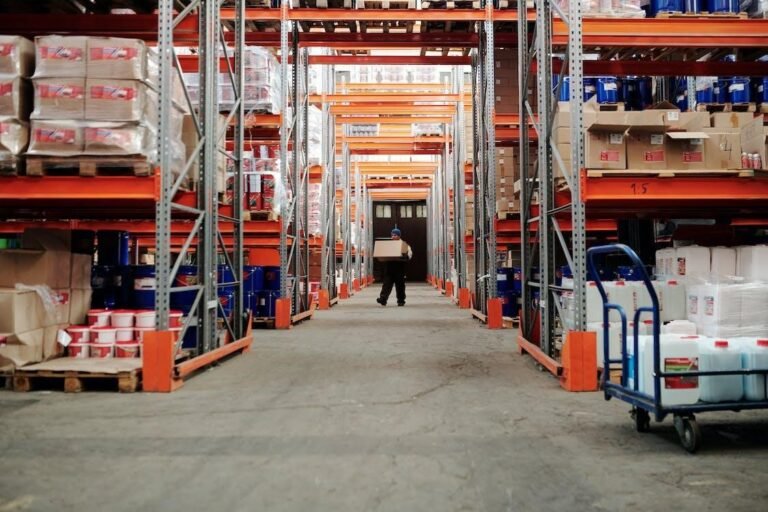
Pallet racking is a storage system used for storing palletized goods in a warehouse or manufacturing facility. This system uses vertical upright frames, horizontal beams, and metal shelves to provide a structure that can hold pallets of varying sizes and weights. Pallet racking maximizes the use of vertical space in a facility, allowing more goods to be stored in a smaller area. It also provides easy access to stored goods, increasing efficiency and productivity in the workplace.
There are different types of pallet racking systems available, including selective pallet racking, drive-in pallet racking, push-back pallet racking, and pallet flow racking, and the type of system used will depend on the specific needs of the facility. Pallet racking is a popular solution for storage needs due to its efficiency, accessibility, and ability to be customized to meet the specific requirements of a facility.
Types of Pallet Racking Systems
Pallet racking systems are an essential part of any warehouse or storage facility, providing efficient storage and organization of goods. There are a variety of pallet racking systems available, each with its own advantages and disadvantages.
- Selective Pallet Racking – This is the most common type of pallet racking system, which allows direct access to each pallet. It consists of vertical upright frames, horizontal beams, and metal shelves.
- Drive-In Pallet Racking – This system is ideal for high-density storage of similar items. Pallets are stored on rails that are mounted on the floor, and forklifts enter the racking system to place and retrieve pallets.
- Push-Back Pallet Racking – This system is similar to drive-in racking but uses carts on rails to push pallets back to the furthest end of the racking system. It offers a high-density storage solution while still allowing easy access to the stored goods.
- Pallet Flow Racking – This system is ideal for storing large quantities of the same item. It uses gravity to move pallets from the back of the system to the front. Pallets are loaded from the back, and as one pallet is removed, the next pallet moves to the front.
Benefits of Pallet Racking Systems
- Increased Storage Capacity – Pallet racking systems maximize storage space, allowing facilities to store more goods in a smaller area.
- Easy Access to Goods – Pallet racking systems are designed to allow easy access to all stored goods, increasing efficiency and productivity.
- Improved Safety – Pallet racking systems are built to be durable and safe, reducing the risk of accidents and injuries in the workplace.
- Customizable – Pallet racking systems can be customized to meet the specific storage needs of a facility, including the type of goods being stored, the size and weight of the pallets, and the available floor space.
- Cost-effective – Pallet racking systems are a cost-effective solution for storing goods, as they require less floor space than other storage systems, and increased efficiency and productivity can result in cost savings.
In conclusion, pallet racking systems are an essential storage solution for warehouses and manufacturing facilities. They offer increased storage capacity, easy access to goods, improved safety, and customization options, all while remaining cost-effective. If you’re in the market for a pallet racking system, be sure to consider the different types available and consult with a professional to find the best solution for your storage needs.
Read more:
29m Series Capitallardinoistechcrunch ,$29M Raised by Lumigo in Series A round led by Redline Capital